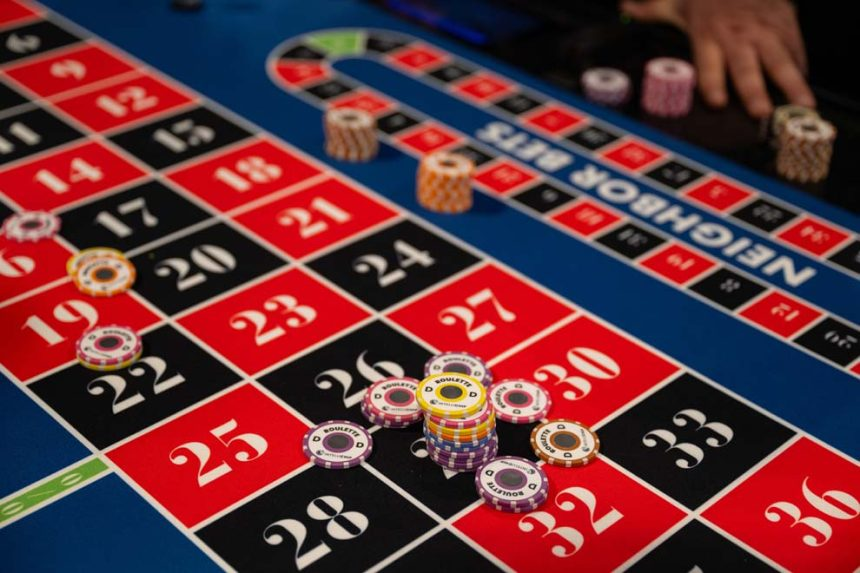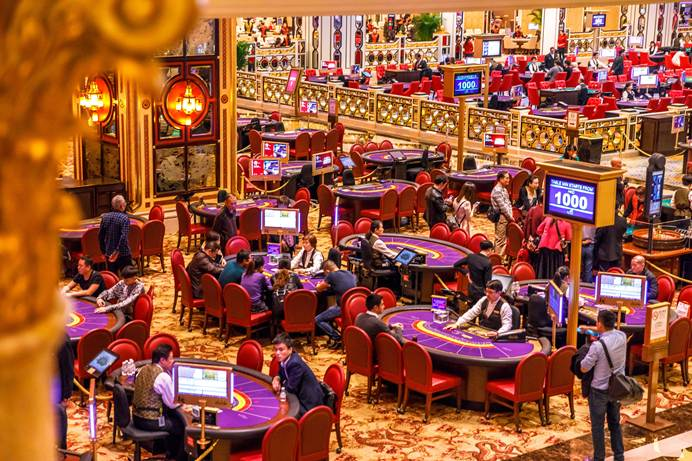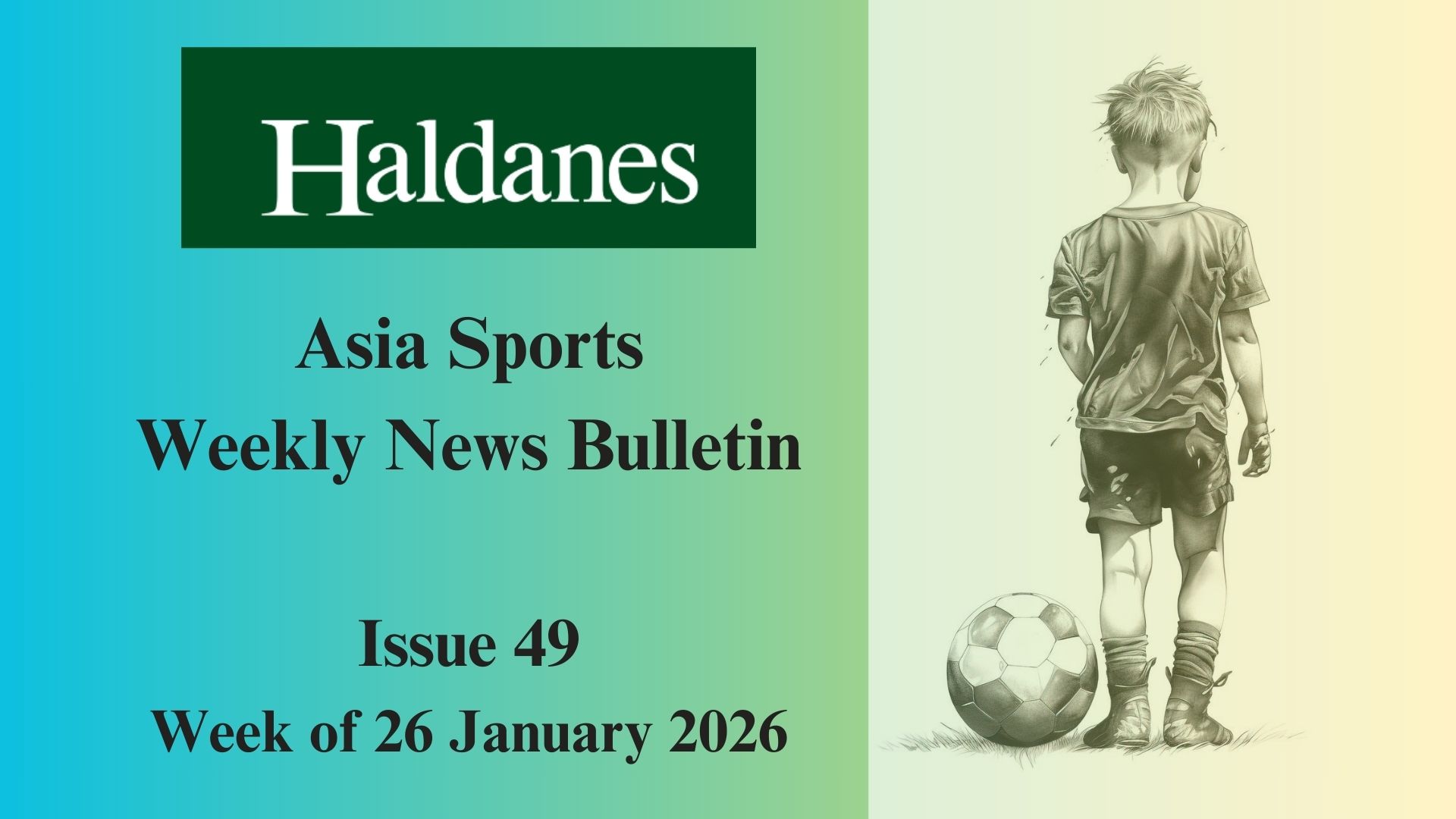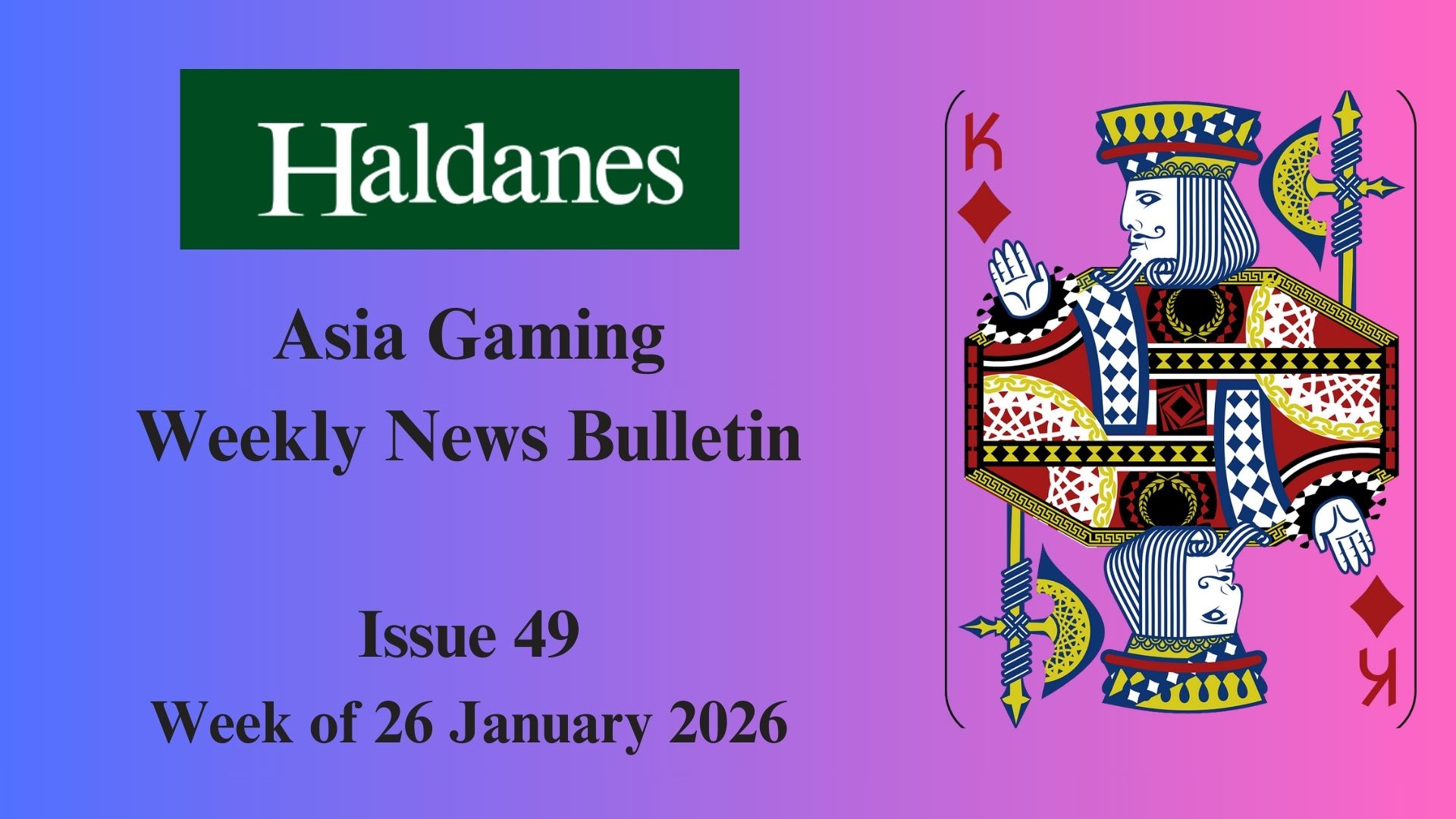Asia Gaming Weekly News Bulletin – ISSUE 41 Week of 17 November 2025
(1) Sri Lanka’s Gambling Regulatory Authority Act will take effect on December 1, according to an official gazette announcement in the name of the country’s leader, President Anura Kumara Dissanayake,
HKJC’s first Conghua Racecourse meeting set for October 31, 2026, delayed from April for construction and China’s equine plan. Invitation-only launch; simulcast betting global, no mainland wagering.
(2) Gambling ads bypass Meta restrictions to target Indonesian users despite national ban
A probe by global news agency Agence France-Presse (AFP) has uncovered dozens of illegal gambling promotions disguised as legitimate ads across Meta platforms in Indonesia.
(3) Macau gov’t predicts lower gaming tax volume for 2026
Macau authorities estimate 2026 will end with a total of MOP92.7 billion ($11.6 billion) in taxes collected from public concessions, the majority of which is represented by gaming taxes.
(4) SJM Resorts to Close Casino Casa Real on November 21 Amid Macau’s Satellite Casino Restructuring
SJM Resorts has announced that its Macau satellite casino venue, Casino Casa Real, will close permanently at 11:59 pm on November 21, 2025. The move is in line with the policy drive by the Macau SAR Government to develop a “healthy and sustainable” gaming industry and its call for the phase-out of the existing satellite casinos before the end of this year.
(1) Sri Lanka’s Gambling Regulatory Authority Act in effect from Dec 1

(Photo Credit: GGR Asia)
Sri Lanka’s Gambling Regulatory Authority Act will take effect on December 1. In October, the national government said it planned to complete the establishment of the Gambling Regulatory Authority as a body by June 30 next year. In August this year, Sri Lanka’s parliament passed legislation enabling the creation of a Gambling Regulatory Authority.
According to the Gambling Regulatory Authority Act, the new regulator is to have a broad mandate, including the collection of gambling-related revenue, ensuring transparency and good governance in the industry, curbing illegal gambling, and standardising betting and gaming establishments.
Also in August, the country opened its first international-standard integrated resort with a casino, City of Dreams Sri Lanka. The property, managed by global casino operator Melco Resorts and Entertainment Ltd, is located in the capital, Colombo. In September, Sri Lanka’s Cabinet of Ministers reportedly approved a 2025 budget proposal to increase the country’s betting and gaming levy by three percentage points to 18 percent, and to double to US$100 the casino entry fee applicable to its own citizens.
News Source: https://www.ggrasia.com/sri-lankas-gambling-regulatory-authority-act-in-effect-from-dec-1
(2) Gambling ads bypass Meta restrictions to target Indonesian users despite national ban

(Photo Credit: Marketech APAC)
A global investigation by Agence France-Presse (AFP) exposed dozens of illegal gambling promotions disguised as legitimate ads on Meta platforms (Facebook, Instagram, Threads) in Indonesia. These ads bypassed Meta’s policies by posing as innocuous content—such as video game promotions or health tips (e.g., “how to lower diabetes” or “benefits of pomegranates”)—but redirected users to betting sites, targeting vulnerable groups including minors.
Indonesian users like Zed (a gamer) and Moli reported repeated encounters with these ads, noting inadequate removal despite complaints. Indonesian authorities highlighted the severity of the issue, having removed 5.7 million gambling-related content pieces over eight years and arrested 85 influencers for promoting betting in 2023. The Ministry of Communication warned Meta of escalating penalties, including access termination, for unaddressed violations.
Meta faces potential government sanctions for failing to curb these violations, though it removed some ads after AFP’s inquiry. The ministry emphasized demands for stronger ad detection systems and cited TikTok’s recent suspension as precedent. AFP’s investigation revealed transnational operations (e.g., Hanoi-based pages managing Indonesian ads), underscoring the challenges of enforcing local laws on global platforms.
News Source: https://marketech-apac.com/gambling-ads-bypass-meta-restrictions-to-target-indonesian-users-despite-national-ban/
(3) Macau gov’t predicts lower gaming tax volume for 2026

(Photo Credit: Asia Gaming Brief)
Macau authorities estimate 2026 will end with a total of MOP92.7 billion ($11.6 billion) in taxes collected from public concessions, the majority of which is represented by gaming taxes. Macau authorities estimate 2026 will end with a total of MOP92.7 billion ($11.6 billion) in taxes collected from pub. This amount, included in the Macau SAR 2026 Policy Address document, if achieved, would represent 80 percent of the total MOP114.8 billion ($14.4 billion) in taxes collected during the year. Revenue from concessions is divided into gaming concessions revenue and public utilities revenue, with the former comprising most of this value. The amount projected by the Macau government would represent a slight reduction from the MOP93.3 billion ($11.7 billion) predicted for 2025.
Under Macau’s 10-year gaming concession system, which began on January 1, 2023, the effective tax on casino gross gaming revenue (GGR) is 40 percent. The government’s annual budget for gaming duty revenue in 2025 so far is MOP93.1 billion ($11.6 billion), meaning that the revenue collected in the first ten months has reached 87.5 percent of its target.
Chief Executive Sam Hou Fai noted that GGR remains below expectations and is unlikely to meet year-end targets, citing vulnerability to external economic conditions. Due to global uncertainty, Macau refrained from providing a 2026 GGR estimate, having already reduced its 2025 forecast by 5% to MOP228 billion. Despite a tourism rebound, factors such as typhoons have hindered GGR growth during key periods, limiting the sector’s recovery.
News Source: https://agbrief.com/news/macau/19/11/2025/macau-govt-predicts-lower-gaming-tax-volume-for-2026/
(4) SJM Resorts to Close Casino Casa Real on November 21 Amid Macau’s Satellite Casino Restructuring

(Photo Credit: igamingtoday)
The closure of Casino Casa Real results from Macau’s 2023 policy requiring satellite casinos to either shut down or be absorbed by main concessionaires, a move coordinated with the Macau Gaming Inspection and Coordination Bureau (DICJ) to ensure orderly cash, chip, and asset handling. SJM will redistribute gaming tables, slot machines, and related assets to other group properties, while honoring unredeemed chips and customer balances at all SJM facilities from November 22.
SJM confirmed that all 296 local employees at Casa Real will retain jobs and be transferred within the group, with non-direct hires receiving priority consideration for vacancies and transitional support. This approach aligns with broader industry consolidation, following closures of other satellites like Legend Palace and Emperor Palace, as operators such as Melco and Galaxy also adjust to the regulatory shift.
Amid the phase-out of satellite venues, SJM is strategically acquiring key properties like Ponte 16 and L’Arc Macau to strengthen its flagship portfolio. The move reflects Macau’s push toward a centralized, regulated market focused on sustainable growth—balancing industry development with regulatory oversight as the city repositions its gaming sector for long-term stability.
News Source: https://www.igamingtoday.com/sjm-resorts-to-close-casino-casa-real-on-november-21-amid-macaus-satellite-casino-restructuring/


